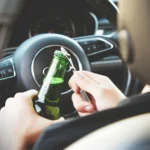Recovery from drug or alcohol addiction is a major achievement. Completing treatment is something to be proud of, but staying sober after rehab can be one of the most difficult parts of the recovery process. Relapse does not mean failure; it simply shows that recovery is a lifelong journey that requires patience, planning, and ongoing support.
Understanding why relapse happens and learning how to prevent it are key parts of maintaining lasting sobriety.
What Is Relapse?
Relapse means returning to substance use after a period of sobriety. It usually doesn’t happen suddenly but occurs in stages that develop over time.
- Emotional relapse: You may not be thinking about using it, but your emotions and behaviors—such as stress, irritability, or isolating yourself begin to create vulnerability.
- Mental relapse: You start thinking about using again, remembering the “good times,” and convincing yourself that you can handle it “just once.”
- Physical relapse: You physically use it again, leading to a return of addictive behavior.
Recognizing the warning signs early gives you the chance to get help before it reaches the physical stage.
Why Relapse Happens
There are several common reasons why people relapse. These include:
- Stress: High levels of pressure or emotional tension are major triggers.
- Negative emotions: Feelings like anger, sadness, or guilt can lead to self-destructive coping behaviors.
- Social environments: Being around people who drink or use drugs can make it harder to stay sober.
- Lack of support: Without consistent encouragement and guidance, recovery can feel isolated.
- Overconfidence: Believing that “I’ve got this handled” can lead people to let their guard down.
Understanding your personal triggers allows you to plan how to handle them in healthy ways.
Proven Relapse Prevention Strategies
Preventing relapse means being proactive and consistent. Here are effective strategies that can help you stay committed to your recovery.
1. Build a Strong Support Network
Support is one of the most powerful tools for recovery. Family members, friends, counselors, and sponsors all play an important role. Participating in peer-support programs like Alcoholics Anonymous (AA) connects you with others who share your experiences. These meetings are available in-person and online, making it easier to stay connected and accountable.
If you ever feel tempted to use it, reaching out to someone who understands recovery can make all the difference.
2. Continue Therapy and Aftercare
Recovery doesn’t end when rehab does. Ongoing therapy and aftercare programs help you manage daily stress, build coping skills, and stay focused on your goals.
3. Practice Daily Self-Care
Taking care of yourself physically and mentally helps reduce stress and prevent emotional burnout. Try to:
- Get enough sleep every night
- Eat healthy, balanced meals
- Exercise regularly
- Practice relaxation techniques, like mindfulness or yoga
When you feel balanced and healthy, you’re better equipped to handle triggers and cravings.
4. Identify and Manage Triggers
Everyone has personal triggers that can lead to cravings. These might be emotional situations, certain people, or familiar places linked to past substance use.
Once you identify your triggers, develop a plan to avoid or manage them. For example:
- If a certain environment makes you uncomfortable, avoid it.
- If stress is a trigger, take time to breathe or talk to a counselor.
- If loneliness is an issue, schedule social activities or attend a support meeting.
Being aware of what can set you off allows you to take control before relapse happens.
5. Create Healthy Routines and Goals
Routine adds structure to your day, giving you less idle time to think about using it. Include time for work, hobbies, meals, rest, and connections with others.
Set realistic goals that keep you motivated. These can be small daily goals like journaling or attending a meeting, or larger life goals, like going back to school or improving relationships. Each small success builds confidence and a stronger sense of purpose.
6. Learn from Setbacks
If a relapse or slip happens, it doesn’t mean you’ve failed. Many people experience one or more relapses before achieving long-term sobriety. What’s important is how you respond.
Use it as a learning experience. Ask yourself:
- What triggered this?
- How can I respond differently next time?
- Who can I reach out to for support?
Getting back on track quickly shows commitment and strength. Remember, progress is rarely a straight line; what matters most is continuing forward.
Staying Strong in Recovery
Relapse prevention isn’t about avoiding every mistake; it’s about building resilience and having the tools to recover from setbacks. Staying strong in recovery means surrounding yourself with support, continuing therapy, managing triggers, and maintaining a lifestyle that encourages health and stability.
Recovery is a lifelong process, and it’s completely normal to face challenges along the way. What truly matters is your willingness to keep moving forward, one day at a time.
You don’t have to go through recovery alone. With the right tools, mindset, and community, long-term sobriety is not only possible; it’s life-changing.
If you or someone you love is at risk of relapse or needs support staying sober, contact California Recovery Center today. Our compassionate team is here to help you maintain recovery and live a fulfilling, healthy life.




